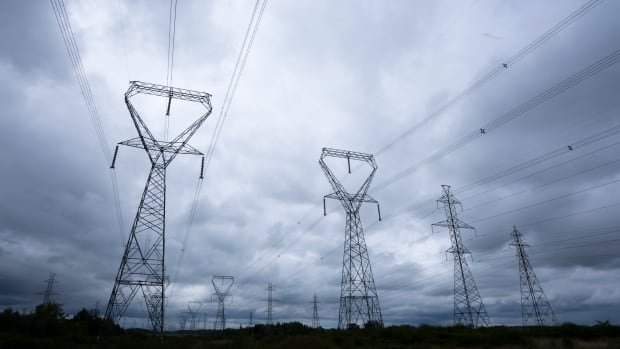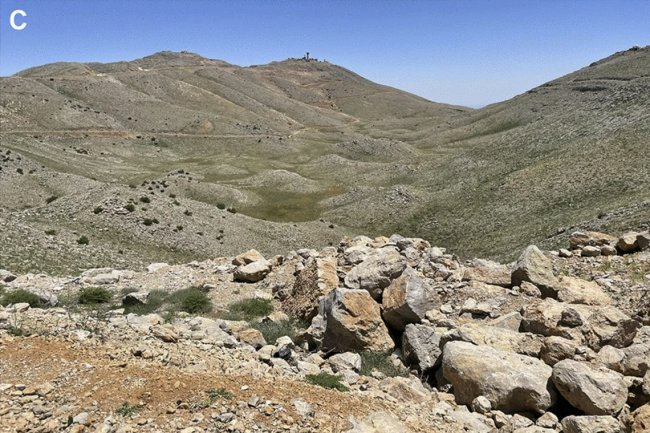More people are making contact with power lines. Here's how to stay safe this summer
Canadians will be spending more time outdoors in backyards, parks, cottages and elsewhere with the arrival of the summer weather. Electrical safety advocates say they should pay attention to where the power lines are present in these outdoor spaces. (Adrian Wyld/The Canadian Press)Electrical safety advocates are urging people to be careful during any summer fun or home-improvement projects.Ontario has seen a sharp rise in power line contacts involving members of the public in recent years, especially during the height of the pandemic.Patrick Falzon, a power line safety specialist with Ontario's Electrical Safety Authority (ESA), says the province saw an average of 16 to 20 such incidents reported each year from 2012 to 2018.But those numbers have since been trending much higher."In 2019, we had 75 power line contacts," said Falzon, citing data that includes both near-misses and incidents in which people have been hurt. That number went up to 82 in 2020, then dropped to 67 in 2021. Last


Electrical safety advocates are urging people to be careful during any summer fun or home-improvement projects.
Ontario has seen a sharp rise in power line contacts involving members of the public in recent years, especially during the height of the pandemic.
Patrick Falzon, a power line safety specialist with Ontario's Electrical Safety Authority (ESA), says the province saw an average of 16 to 20 such incidents reported each year from 2012 to 2018.
But those numbers have since been trending much higher.
"In 2019, we had 75 power line contacts," said Falzon, citing data that includes both near-misses and incidents in which people have been hurt.
That number went up to 82 in 2020, then dropped to 67 in 2021. Last year's numbers are not yet available.
It's not precisely clear why there's been a rise in reported cases, though some of the increase has occurred as people spent more time at home during the pandemic.
"What ended up happening is, people were confined to their home or their property, so homeowners decided to actually tackle the do-it-yourself-er kind of projects," said Falzon.
Those projects can run the risk of hitting power lines, whether above the ground or beneath the soil, if precautions aren't taken.
Trees and vegetation
Trees and other vegetation are factors that utility providers have to manage — and they make arrangements to do so.
Falzon said that's something the Ontario utilities have to do for the lines they own.
As Daniel McNeil, a corporate spokesperson for Toronto Hydro, explained via email, the big city electric utility "is responsible for maintaining trees and vegetation around its equipment" and it employs a planned pruning cycle to achieve this, in addition to any emergency-related work it undertakes.
Still, the ESA's website lists safety tips for looking after trees and doing landscaping tasks at home.

These safety issues are relevant to people living in any parts of Canada where power lines are present. And other utilities pay attention to them, too.
In 2021, B.C. Hydro reported seeing a concerning 30 per cent rise in "backyard logging" incidents, which were reported during the first year of the pandemic. Just like in Ontario, people were, at that time, doing a lot of work on their homes and properties and dozens had close calls with power lines. Fortunately, this uptick seems to have receded since that time, according to B.C. Hydro spokesperson Susie Rieder.
Call before you dig
Homeowners have heard it before, but it's worth repeating — call before you dig.
The safety-minded mantra refers to the need to call in professionals to help you understand where infrastructure — like buried power lines or gas lines — are located on a given property.
That's important to know if you're planning to put in a fence, add a tree or shrub to a yard or do any work requiring digging, whether at home, a cottage or somewhere else.
"Always do a locate and make sure you're not you're not contacting anything you might not be aware of," said Brooke Fraser, a customer operations manager for Hydro One.
In Ontario, homeowners can call Ontario OneCall — a service that puts the people who want to dig in touch with infrastructure owners, who will arrange to have the locations of buried lines, pipes and cables marked. In British Columbia, anyone planning to dig needs to contact BC 1 Call.
Manitobans can reach out to Click Before You Dig MB to avoid making contact with buried utility-related hazards.
Bruce Owen, media relations officer for Manitoba Hydro, points out that with "more and more stuff" being put underground, the need to make that call is not going away.
Stay sharp after storms
Hydro One's Fraser said people should also be aware of how to stay safe in the aftermath of summer storms.

"You might not always be able to see the downed lines that the trees have brought down," Fraser said.
If a downed line is spotted, Fraser and other safety advocates remind the public to keep their distance and to always assume the line remains live.
"Don't second-guess it," she said. "Just stay away and make sure you call to get that situation made safe."
Keep away from lines
Over the years, there have been many tragic stories involving people coming into contact with power lines.
Deaths or injuries have occurred during otherwise very innocuous activities — like when kids are playing outdoors, or when adults are likewise engaging in leisure activities.
With this in mind, it's important to consider where power lines are located when setting up for these same activities.
"Sometimes where these infrastructures are aren't ideal," said Fraser.

Fraser said a family may want to put up a swing set or other play equipment, but it's important to understand the hazards that may be present before they are installed — and also to ensure that any leisure activity is taking place in a safe area.
Deadly consequences
The circumstances of power line contacts involving leisure activities vary, but the trouble often comes when a person does not see the danger that is present.
The ESA's Falzon discussed an incident that occurred in Ontario last year involving a man flying a drone. The device got stuck in a tree, which was abutting a power line that was not visible.
"There was heavy foliage around it," Falzon explained.
The individual used a high-reach object to try to retrieve the object. That person died as a result of the ensuing power line contact.
Falzon said a similar danger could unfold with other tools, devices or toys in similar circumstances.
His advice is to always "look up and look out" in order to stay safe.
Manitoba Hydro's Owen echoed that message.
"Take that second to look up," Owen said, reiterating the dangerous reality that if you touch a line, you could be killed.
What's Your Reaction?

















